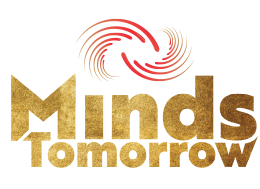Are the current revolutions … REVOLUTIONS?

Who thinks there are revolutions happening in the world today? What about ‘scientific revolutions’ and ‘business revolutions’?
Let’s look at the scientific revolutions work of the famous philosopher Thomas S. Kuhn who wrote “The Structure of Scientific Revolutions” in 1962! Nearly 60 years ago. Can Kuhn’s work be applied to the changes we see in how businesses are responding to significant change? Let’s explore some information to help us answer this question.
Kuhn formulated some assumptions that are of interest. These are:
- The scientific community passes on its ‘trade’ with some set of beliefs to the next generation of scientists. These beliefs form a foundation for professional practice. In what ways do organisations pass on beliefs to staff and their customers? Are those beliefs valid in today’s ‘fast-change’ world? Do those beliefs of the past help businesses respond in an agile way particularly to global challenges such as COVID-19? Are businesses prepared for the future?I read an article just today that Deutsch Bank is suggesting that people working from home should pay a 5% ‘privilege tax’ which could raise $49bn per year in the USA and €20bn per year in Europe – will the money raised truly make a difference to the current economic challenges facing the whole world now and for some time? At this point the question is ‘Who decided that people should work from home’
- Kuhn said that ‘normal science’ is predicated on the assumption that the scientific community knows what the world is like. Is this assumption still valid today? Does the scientific community know what the world is like right now? How many computer models are necessary to understand our complex macrocosmTurning to the business world, does the business world really know what the world is like right now? Perhaps some of the big corporations have good complex simulation computer models. What about small business, the backbone of many economies?
- Another assumption is that a shift in professional commitments to shared assumptions takes place when an anomaly overthrows the existing tradition of scientific practice…These are the shifts that Kuhn refers to as ‘scientific revolutions’.To develop a new assumption or paradigm/theory, a reconstruction of prior assumptions is required. When the shift occurs, the ‘scientist’s world is qualitatively transformed’. Let’s apply this to businesses. To be agile in business, do business leaders have the resources and time to re-evaluate prior facts and reconstruct prior assumptions about business models to be ahead of significant and potentially destructive change levers? When shifts occur, are businesses qualitatively transformed? Think about this a moment.
This brings me back to the title of this article, are current revolutions, revolutions? Are revolutions happening in business, now. My view and I am sure many agree, is that there are revolutions happening in businesses. The businesses that are surviving and growing have taken their business models and transformed. Take a look at the characteristics of these businesses and identify what makes them ‘tradition shattering’.
Now, do you want to know more about being ‘tradition shattering’ in your business?
Start with your business model and particularly the leadership mindset including the company board – if you have one. What are those key characteristics making the business ‘tradition shattering’? Now, here’s another thing. What is it in surviving and growing businesses that keeps certain elements of tradition alive and part of the paradigm shift?
Look forward to your comments and conversations.
Gina Palmer



